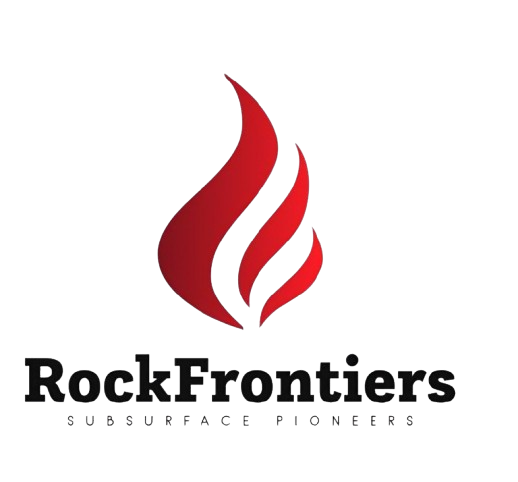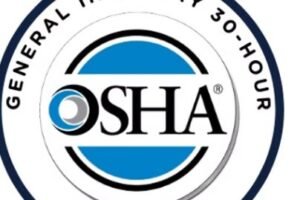Reservoir Management and Integrated Field Development
Course Overview: This course provides an in-depth understanding of how to manage reservoirs efficiently through the integration of geoscience, engineering, production, and economic data. It focuses on reservoir surveillance, forecasting, production optimization, and field development planning using an interdisciplinary approach. …
Overview
Course Overview:
This course provides an in-depth understanding of how to manage reservoirs efficiently through the integration of geoscience, engineering, production, and economic data. It focuses on reservoir surveillance, forecasting, production optimization, and field development planning using an interdisciplinary approach.
Day 1: Fundamentals of Reservoir Management
-
09:00–09:45 – Introduction to reservoir management principles
-
09:45–10:30 – Key performance indicators (KPIs) for reservoir performance
-
10:30–10:45 – ☕ Coffee Break
-
10:45–11:30 – Integration of G&G, engineering, and economics
-
11:30–12:15 – Reservoir life cycle: discovery to abandonment
-
12:15–13:15 – 🍽️ Lunch Break
-
13:15–14:00 – Data gathering and uncertainty reduction
-
14:00–14:45 – Group discussion: key success factors in management
-
14:45–15:00 – Recap and Q&A
📅 Day 2: Integrated Field Development Planning (IFDP)
-
09:00–09:45 – Components of field development plans (FDPs)
-
09:45–10:30 – Well placement strategies and optimization
-
10:30–10:45 – ☕ Coffee Break
-
10:45–11:30 – Production strategy: depletion vs. injection support
-
11:30–12:15 – Full-field development: greenfield vs. brownfield
-
12:15–13:15 – 🍽️ Lunch Break
-
13:15–14:00 – Case study: integrated FDP for a clastic reservoir
-
14:00–14:45 – Group exercise: FDP outline creation
-
14:45–15:00 – Recap and Q&A
📅 Day 3: Surveillance and Optimization Techniques
-
09:00–09:45 – Reservoir surveillance objectives and tools
-
09:45–10:30 – Production data analysis: decline curve, nodal analysis
-
10:30–10:45 – ☕ Coffee Break
-
10:45–11:30 – Use of 4D seismic, tracers, and smart wells
-
11:30–12:15 – Identifying production inefficiencies
-
12:15–13:15 – 🍽️ Lunch Break
-
13:15–14:00 – Optimization loop: monitor–analyze–plan–execute
-
14:00–14:45 – Hands-on: design a surveillance program
-
14:45–15:00 – Recap and Q&A
📅 Day 4: Forecasting and Economic Evaluation
-
09:00–09:45 – Production forecasting methods (analytical vs. numerical)
-
09:45–10:30 – Decline curve analysis and EUR estimation
-
10:30–10:45 – ☕ Coffee Break
-
10:45–11:30 – Economic indicators: NPV, IRR, payout, risked value
-
11:30–12:15 – Cash flow modeling and sensitivity analysis
-
12:15–13:15 – 🍽️ Lunch Break
-
13:15–14:00 – Use of software for planning and forecasting (e.g., PEEP)
-
14:00–14:45 – Practical: evaluate a simple FDP economic case
-
14:45–15:00 – Recap and Q&A
📅 Day 5: Case Studies and Strategic Planning
-
09:00–09:45 – Case study 1: mature field turnaround with new FDP
-
09:45–10:30 – Case study 2: gas field development with phased planning
-
10:30–10:45 – ☕ Coffee Break
-
10:45–11:30 – Strategic planning for long-term reservoir performance
-
11:30–12:15 – KPI tracking and decision-making framework
-
12:15–13:15 – 🍽️ Lunch Break
-
13:15–14:00 – Team activity: full-cycle FDP and surveillance design
-
14:00–14:45 – Group presentations and review
-
14:45–15:00 – Final remarks, feedback, and certificates
Target audiences
- Reservoir Engineers, Geologists
You May Like
📘 Underbalanced Drilling (UBD) Techniques and Safety
🎯 Course Description: This intensive 5-day program focuses on Underbalanced Drilling (UBD) – an advanced technique used to drill wells where the hydrostatic pressure of the fluid is intentionally kept below formation pressure. Participants will learn how to implement UBD …
📘 IOSH Managing Safely
🎯 Course Description: A practical, 5-day program designed to help managers and supervisors learn how to manage safety and environmental responsibilities in their teams. Emphasis is placed on identifying risks, measuring performance, and leading safely using internationally recognized good practices. …
📘 IWCF Level 3 Well Control (Surface BOP)
🎯 Course Description: This is an intensive course aimed at drilling / well service personnel needing to gain supervisory competence in well control using surface blow‑out preventers (BOP) under the IWCF standard. It covers theory, hands‑on practice, and assessments for …
Advanced Specialist Petroleum GeoMechanics
📘 Course Description: This elite-level course is tailored for petroleum geomechanics specialists and senior subsurface professionals engaged in complex field development projects. It provides a deep technical dive into stress modeling, anisotropic rock behavior, coupled geomechanical-reservoir simulation, fault/fracture mechanics, and …
📘 OSHA 30‑Hour General Industry Safety and Health
🎯 Course Description: This 5‑day course provides in‐depth knowledge of workplace safety and health in general industry sectors. It covers OSHA regulations, hazard recognition, safety programs, and industry best practices. Participants will gain the expertise needed to maintain a safe …






